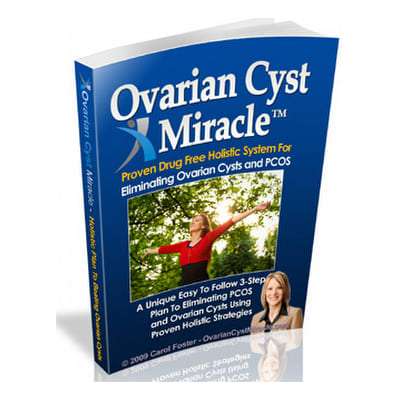Unlock the mysteries surrounding are Cysts on Ovaries Hereditary, ovarian cysts and their hereditary aspects. Dive into a comprehensive exploration of whether cysts on ovaries are hereditary, shedding light on causes, risks, and preventative measures. Expert insights and real-life experiences await.
Family History and Ovarian Cysts: What You Should Know
Ovarian cysts are a widespread gynecological condition affecting many women worldwide. Learning more about their cause, symptoms, diagnosis, treatment options, and prevention strategies for this ailment is vital to early diagnosis and treatment. By exploring this subject more deeply we can gain valuable insight into its causes, symptoms, diagnoses, treatments, preventions strategies and potential treatments for ovarian cysts.
Key Takeaways
Family history may play a part in the formation of ovarian cysts. Genetic factors may increase their likelihood.
Although some cysts may be linked to cancer, most are benign and should not cause concerns.
Ovarian cyst symptoms include abdominal pain, bloating and irregular periods. There are a variety of treatment options for ovarian cysts available from watchful waiting to surgery depending on the size and type of cyst present.
Understanding Ovarian Cysts
Ovarian cysts are fluid-filled sacs that form on or within the ovaries. Their size ranges from small to large and may cause discomfort or pain depending on their location and size, with different kinds of functional, dermoid, endometriomas (caused by endometriosis) or polycystic ovaries being possible causes for their development. Some causes of ovarian cyst formation could include hormonal imbalances during pregnancy (follicle development abnormalities or corpus luteum persistence), endometriosis/Polycystic Ovaries Syndrome/Genetic factors among others.
Family History in Ovarian Cysts
Family history plays a vital role in determining one’s risk of developing ovarian cysts. If a close relative has had them before, your chances of getting them increase considerably compared to those without such history. This increased risk may be related to genetic predisposition or environmental influences causing fluid-filled sacs on ovaries to form more quickly.
Family history can provide invaluable information when it comes to your ovarian health, as it allows you to take proactive measures towards prevention or early detection if necessary. By understanding any familial tendencies towards developing cysts through genetic patterns, healthcare providers will be better able to monitor reproductive health more closely and provide appropriate interventions if needed.
Genetic Factors and Ovarian Cysts
Genetic Factors and Ovarian Cysts
One in 10 women will develop an ovarian cyst at some point during their life; genetic mutations linked to these cysts such as BRCA1 and BRCA2 could play a part. simptome Symptoms associated with Ovarian Cysts Ovarian cyst symptoms can include abdominal pain, bloating, irregular periods, nausea and vomiting.
Diagnosis Ultrasound, CT scan, MRI and blood tests to measure hormone levels as indicators. Treatment This could involve watchful waiting, birth control pills, surgery to remove the cyst or hormone therapy therapy as remedies.
Genetic factors may play a part in the formation of ovarian cysts. Mutations to BRCA1 and BRCA2 genes have been linked with an increased risk for cyst formation as well as increased odds for developing cancer; genetic testing can help identify such mutations and provide individuals with information regarding their risk for cysts or cancer.
Genetic testing for ovarian cysts involves analyzing an individual’s DNA to identify any genetic mutations that increase susceptibility to developing fluid-filled sacs on their ovaries, so healthcare providers can develop personalized prevention strategies or recommend more frequent screenings in order to detect early on any future cyst formation.
Ovarian Cysts and Cancer
Though most ovarian cysts are harmless, some could signal cancerous growth within the ovaries. While not all cysts are cancerous, certain types such as solid masses have a greater likelihood of being malignant than others.
Early detection is key when it comes to managing potential malignancies associated with ovarian cysts. Regular check-ups and screenings play a vital role in identifying any abnormal growth patterns or changes that might indicate cancerous cells present within their cystic structure.
Ovarian Cyst Symptoms: What To Watch Out For
Ovarian cysts do not always produce visible symptoms and may resolve on their own without intervention, though some women may experience pelvic pain or discomfort, bloating, pressure on the bladder or rectum leading to frequent urination or bowel movements respectively, menstrual irregularities (including heavy bleeding), pain during intercourse (dyspareunia), lower back pain radiating down into legs (sciatica-like symptoms) and infertility in some instances.
As these symptoms may also indicate other gynecological conditions, it’s essential that they are assessed by a healthcare professional for accurate diagnosis. If symptoms persist or worsen quickly, seek medical assistance as soon as possible.
Diagnostic Strategies and Procedures for Ovarian Cysts
Healthcare professionals may employ various imaging tests such as transvaginal ultrasound, pelvic MRI (Magnetic Resonance Imaging), or CT (Computed Tomography) scan to accurately diagnose ovarian cysts. These techniques enable healthcare providers to visualize ovaries while also determining their size, location, and characteristics as well as any cystic structures present.
When further evaluation or potential malignancy concerns exist, additional diagnostic procedures may be recommended. This may include blood tests to measure tumor markers like CA-125 levels or laparoscopy – an minimally invasive surgical process allowing direct visualization of the ovaries and removal of suspicious tissue for biopsy.
Ovarian Cysts Treatment Options Available to Women
Treatment strategies for ovarian cysts vary based on various factors, including type, size and symptoms experienced by an individual, their age considerations (premenopausal vs postmenopausal), fertility preservation goals if applicable and potential future fertility preservation plans etc.
Watchful waiting may be advised in cases where an ovarian cyst is small and asymptomatic (causing no discomfort), to ensure that any potential growth doesn’t become larger and cause additional complications over time. Regular appointments with healthcare professionals should ensure this.
Medication such as hormonal contraceptives (birth control pills) may also be prescribed to regulate hormone levels and prevent new cyst formation in individuals who experience functional ovarian cysts on a recurring basis. If symptoms persist despite conservative approaches mentioned previously or there are concerns of potential malignancy; surgery might be required either through laparoscopy or open surgery (laparotomy), depending on its size, location and characteristics of the cyst.
Lifestyle Changes for Managing Ovarian Cysts
Lifestyle changes alone cannot prevent ovarian cysts, but they can certainly help manage symptoms and support overall reproductive health. A diet rich in fruits, vegetables, whole grains, lean proteins and healthy fats can support hormonal balance as well as reduce inflammation in the body. Regular exercise also has great potential as it regulates hormone levels while providing overall wellbeing benefits.
Stress-busting techniques such as meditation, yoga, deep breathing exercises or participating in enjoyable activities may help lower stress levels in the body and thus impact hormonal balance in an indirect fashion.
Preventing Ovarian Cysts: What You Can Do
Though it is impossible to avoid all ovarian cysts due to genetic or other underlying conditions like PCOS or endometriosis, individuals can take steps to reduce their risk:
- Regular Checkups: Regular gynecological exams allow healthcare providers to keep tabs on your reproductive health closely, and detect any anomalies early.
- Hormonal Contraception: Some forms of hormonal birth control such as pills or intrauterine devices containing hormones can help regulate hormone levels and prevent new cysts from forming.
- Healthy Lifestyle Habits: Opting for a diet rich in essential nutrients while cutting back on alcohol consumption or smoking can greatly benefit reproductive health overall.
- Being Aware: By understanding your family’s medical history regarding ovarian cysts, being proactive about prevention strategies if needed can provide invaluable peace of mind.
When to Seek Medical Attention for Ovarian Cysts
Most ovarian cysts are relatively harmless and will resolve without intervention; however, certain signs should prompt medical assistance for immediate diagnosis:
- Sudden severe abdominal pain 2. Rapidly increasing abdominal girth
- Nausea/vomiting
- Faintness or dizziness
- Fever or chills
- Difficulty breathing
If you experience any of these symptoms, it is vitally important that you seek medical help immediately as they could indicate a ruptured cyst, an ovarian torsion (twisting), or other complications which need immediate intervention.
Coping with Ovarian Cysts: Support and Resources
Faced with ovarian cysts can be emotionally trying. But remembering there are support groups and resources out there can provide guidance, information, and emotional support during this journey.
Women experiencing ovarian cysts may benefit from attending support groups designed specifically for them, where they can share experiences, ask questions and find comfort among peers who understand. Furthermore, online resources dedicated to reproductive health such as websites or forums dedicated to reproductive issues may offer invaluable information and expertise about ovarian cysts and connect you with specialists.
Emotional support from loved ones is also invaluable during times of struggle. Reach out to family or close friends who can offer an ear, or accompany you on medical appointments if needed.
Understanding the connection between family history and ovarian cysts is a key element in early detection and treatment. By becoming acquainted with their causes, symptoms, diagnosis methods and possible therapies we equip ourselves to take proactive measures towards prevention or timely intervention when necessary.
Regular check-ups with healthcare professionals allow us to closely monitor reproductive health while genetic testing provides invaluable insights into individual risk factors for developing ovarian cysts. By making healthier lifestyle choices such as adopting a balanced diet and regular exercise regimes alongside stress reduction techniques; we can contribute positively towards overall reproductive wellness while decreasing potential risks associated with the formation of these fluid-filled sacs on our ovaries.
Note that seeking medical help promptly when experiencing severe symptoms associated with ovarian cysts is vital for early diagnosis and appropriate treatment. Coping with these cysts may be emotionally challenging, but with support from loved ones, online resources, and dedicated support groups you can face this journey head on with strength and resilience. Understanding family histories as well as taking proactive measures towards prevention or early intervention helps us prioritize our reproductive health and overall well-being.
What Is Family History (FAQs)
Family history refers to the medical histories of an individual’s relatives – parents, siblings, grandparents, aunts/uncles/cousins- as a whole. It includes any known conditions/disorders/diseases which run in their family tree.
What Are Ovarian Cysts (OCs)
Ovarian cysts are fluid-filled sacs that form on the ovaries. While generally harmless, ovarian cysts may sometimes cause symptoms like pain, bloating and discomfort that make life uncomfortable for its bearers.
What is the relationship between family history and ovarian cysts?
There is some evidence suggesting that having a family history of ovarian cysts increases one’s risk. More research needs to be conducted in this area in order to fully comprehend this connection between family history and ovarian cysts.
What are the symptoms of an ovarian cyst?
Ovarian cyst symptoms vary depending on their size and type. Common ones include pelvic pain, bloating, abdominal swelling and changes to menstrual cycles.
How are ovarian cysts diagnosed?
Ovarian cysts can usually be diagnosed through a pelvic exam, ultrasound scan or other imaging tests. Blood testing may also be performed to look for specific hormones that indicate their presence and might indicate an ovarian cyst is present.
What are my options for treating ovarian cysts?
Treatment options for ovarian cysts depend on their size, type and symptoms. Sometimes no treatment is needed as the cyst will dissipate on its own; other methods may include medication or surgery or even both options simultaneously.


